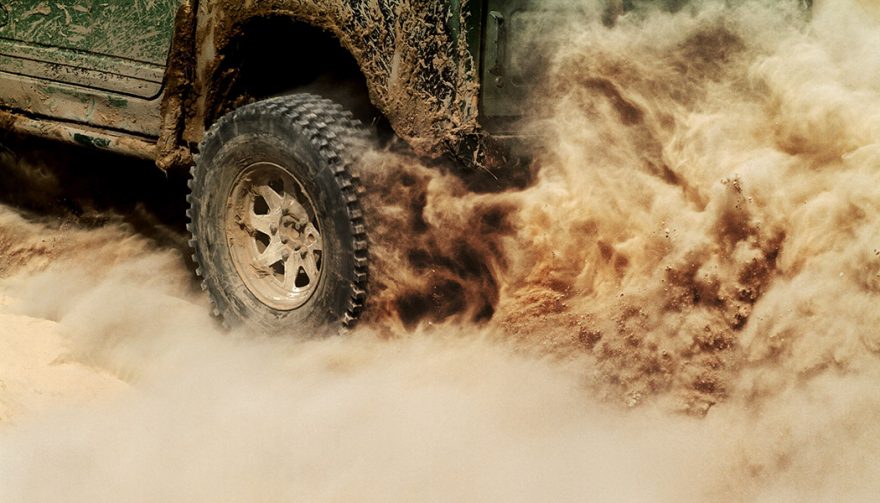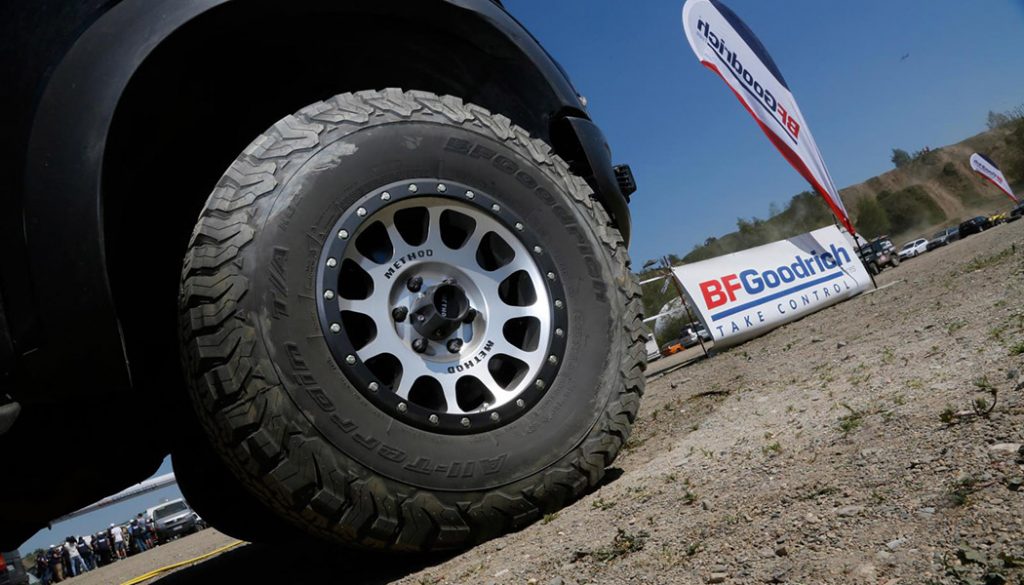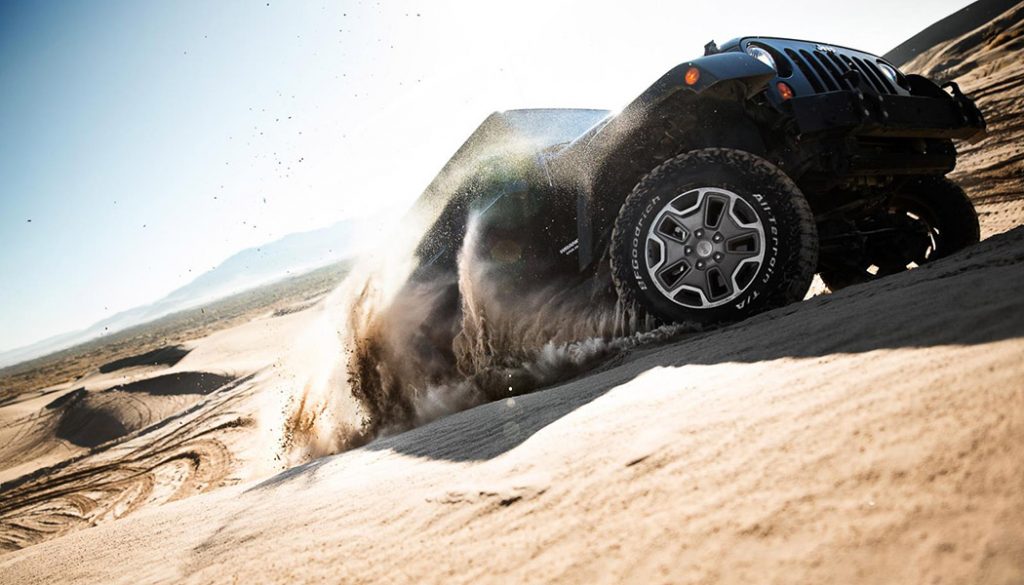
Not sure what rubber is best for your on and off-road needs? Read this to see if the best all-terrain tires are right for your ride.
The Best All-Terrain Tires – Are They Right for Your Pickup or SUV?
All-Terrain tires. The name sounds pretty awesome right? All-terrain conjures up images of ripping across a desert, or crawling over rocks, or kicking up dirt on a fire break road. But can the best all-terrain tires do that? And if they can, how do they stack up with other tires, even those designed for off-road use?
Manufacturers of all-terrain tires have a less aggressive description of their tires. This particular class of rubber is designed to provide traction on all types of surfaces. They are meant to perform well on dirt and gravel like off road tires, and as smooth a ride on pavement as a touring tire. The target market for the best all-terrain tires includes SUVs, pickup trucks, and campers. These vehicles typically have higher clearances, stronger suspensions, and bigger wheels than crossovers and sedans.
If you own one of the target type vehicles, and you drive both on and off-road, then you probably ought to check out the pros and cons of all-terrain tires.
So Let’s take a quick look at these rascals.

Pros and Cons
On the plus side:
- Utility: These tires use block tread, also known as an open tread design to improve traction on uneven terrain like gravel, sand, or even mud and rocks. At the same time, the design is not so extreme as to affect handling on pavement like a mud tire might.
- Heavier loads: Many of these tires have reinforced sidewalls that will support heavier loads associated with big pickups and camper vehicles.
- All-season?: The best all-terrain tires are considered to be year-round rubber. Providing traction in snow and icy conditions as well as dry pavement. That’s true, but winter tires and even most all-season tires perform better in snow and ice than these off-road variants.
On the downside:
- Noisier: Like mud-terrain tires, all-terrain rubber uses block tread. Compared to all-season tires with their asymmetrical tread that sends air in all directions cancelling out noise, all-terrain tires are noticeably louder on pavement.
- Shorter tread life: The compound used in the best all-terrain tires is softer than all-season compound making them more susceptible to cupping and tread wear. The difference isn’t severe, but you will need to replace all-terrain tires faster than other types of rubber.
- Lower fuel efficiency: The very characteristics that make this tire grip surfaces better than other tire types cause them to use more energy. The block tread creates more mechanical friction, wind and rolling resistance, lowering their mpg.

Head to Head Comparisons
The obvious advantage of the best all-terrain tires is the ability to be a kind of hybrid. Providing adequate performance on pavement while at the same time providing reasonable traction off-road. If you split your driving between asphalt and dirt, the all-terrain tire makes sense. If however, you spend the bulk of your time either off-road or on pavement, your better bet would be tires designed specifically for your driving routine i.e. off-road or all season.
With that in mind, here are short descriptions comparing AT tires with other types of rubber:
- AT vs All Season: AT tires take a little longer to stop and can’t handle a turn as well as an all-season tire. They are also noisier, tend to suffer from tread cupping, and get poorer fuel efficiency. On the other side of the equation, AT tires have better traction and control on gravel, dirt, or sand than all season. Often, AT tires will be rated for heavier loads than all-season tires.
- AT vs Winter (snow) Tires: AT tires have a softer compound than other types of tires giving them an edge when compared to winter tires. Winter tires still outperform AT in snow and ice, but if you live in an area with moderate snowfall a set of AT tires is all you need. No need to change tires. The block tread and ability to operate in cold temps without becoming brittle make the AT a good choice.
- AT vs Mud tires: There really isn’t much to compare. Mud tires started out as tractor tires to allow farmers to work in muddy fields. They really are poorly designed for pavement travel. They make handling difficult and they are exceptionally noisy. AT tires are good on dry surfaces like sand, dirt and gravel but can’t handle the really big rocks or mud surfaces like a mud tire.
So there you have it. If you have a truck or SUV that spends most of its time split between pavement and dirt, the best all-terrain tires might be just the tires for your ride. There are issues to watch though. If you have a light truck or a smaller SUV, you may have to upgrade your wheels if you buy AT tires. Talking to a tire pro will help you to choose the right brand and size to give you the best results.





